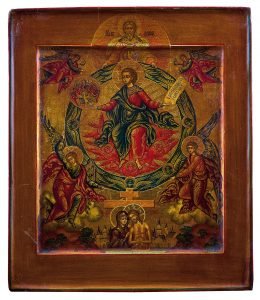 What I have been trying to do in this article is to give my readers some thoughts about what we, as Catholics, think about inspiration and the Bible. What I have been sharing is background about this topic. As I indicated, the early Church developed in a world that had various ideas about inspiration as experienced in the texts of the Old Testament and other texts that various cultures held as sacred. In the last issue I shared the ideas of Epiphanius and other early Christians.
What I have been trying to do in this article is to give my readers some thoughts about what we, as Catholics, think about inspiration and the Bible. What I have been sharing is background about this topic. As I indicated, the early Church developed in a world that had various ideas about inspiration as experienced in the texts of the Old Testament and other texts that various cultures held as sacred. In the last issue I shared the ideas of Epiphanius and other early Christians.
In a few cases, moreover, early writers go beyond this position of divine dictation and cite indications of active creativity on the part of the human authors. This was necessary, I believe, because as they experienced the various texts, they realized that they were different, and yet in some ways the same, and they could not account for the differences.
Cyril of Alexandria repeatedly stresses the care with which John expressed his message, as well as John’s constant efforts to adapt his writings to the goals he had formulated for the Gospel. So also Augustine notes that the Gospel writers drew upon their personal memories of the events they recorded. But by and large, the patristic writers paid little attention to the exact role of the human authors in the production of the sacred books, except to deny that inspiration involved the removal of human consciousness and understanding from the writers. Authors were not merely the conduit for dictations from God. In one respect – and this probably unconsciously, and therefore all the more meaningfully – early Christian writers showed unanimously that they regarded the personalities at the source of the biblical books as typically human authors. When referring to the Bible (until there was felt a need for a terminology to distinguish the divine activity from the human), early church writers spontaneously employed the customary terms for human literary authors – suggrapheus in Greek and auctor in Latin. This choice of words would seem to indicate that they looked upon the human composers of the sacred books as fully deserving the ordinary designations for the human efficient cause of the literary work.
Hopefully my readers are getting the point I am trying to make through this presentation. Are the writings in the Bible merely Godly dictations to scribes OR do the authors of these sacred writings truly authors who are moved to write what they wrote.
